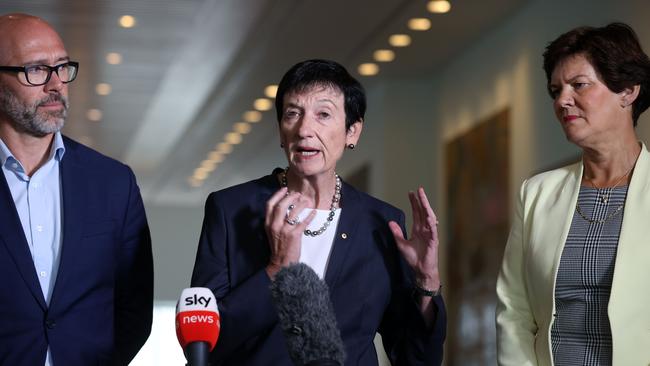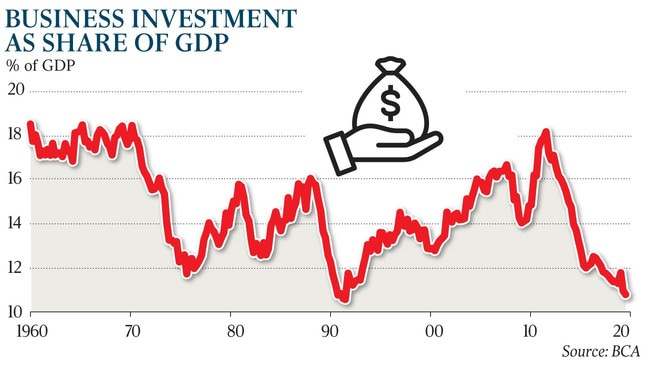Business backs lift in childcare leave
Big business is championing a major lift in support for working parents via longer government-funded parental leave of up to 26 weeks and greater taxpayer funding of childcare,

Big business is championing a major lift in support for working parents via longer government-funded parental leave of up to 26 weeks and greater taxpayer funding of childcare, arguing this would encourage more women into the workforce and drive faster economic growth.
In a submission to Treasury ahead of the federal budget in May, the Business Council of Australia also called on the Morrison government to adopt a more ambitious policy agenda to help pay back what will be a $1.1 trillion debt accumulated from the pandemic.
The peak business lobby warned that Australia could not afford to go back to pre-COVID rates of economic growth.
With investment as a share of the economy at a 28-year low, BCA chief executive Jennifer Westacott said “one of the main roadblocks to success is the shockingly low rates of business investment”.
“An investment recovery can’t just ride on the ute’s back. We need to do everything we can to encourage big companies to make the large investments that will transform the economy and set us up for growth.”
Coca-Cola managing director Alison Watkins, who joined the Reserve Bank board in December, said more permanent government incentives would help drive larger scale, strategic investment into business lines such as waste recycling and green energy.
The BCA said some working parents looking to work more hours could face an effective marginal tax rate of more than 100 per cent because of the combined effect of personal income tax, the childcare subsidy taper rates and the withdrawal of the Family Tax Benefit, “eliminating any financial incentive to work additional hours”.
KPMG national chairwoman Alison Kitchen said there was “an opportunity now to create a step-change in childcare, to remove some of the gender inequities and barriers in the existing childcare system which stop women participating, or stop them from increasing their hours”. “It’s very important we all work on gender participation to remove the many ways in which women are structurally and economically disadvantaged in this country,” Ms Kitchen said.
Under the BCA’s proposal, the maximum childcare subsidy rate would be increased from 85 per cent to 95 per cent of the hourly rate. The rebate would begin to reduce when the family income hit $80,000 a year, rather than $69,390, by one percentage point for every extra $4000 in earnings, and would phase out entirely at a family income of just over $450,000, versus about $354,000 under the current rules.

The annual cap on subsidies per child would be eliminated.
The BCA said the 18-week government-funded parental leave scheme should in the first instance be extended to 20 weeks for either parent.
This would be expanded to 26 weeks over the coming eight years, the BCA said.
To encourage more fathers to take up a greater share of caring for their babies, parents would be rewarded with up to an extra two weeks of leave for each parent if they evenly share the time.
The BCA quoted KPMG research that suggested a $2.5bn annual cost associated with implementing the proposed changes to the CCS would be outweighed by a $4-5bn yearly boost to economic activity.
The intervention by the BCA will put more pressure on the government to revisit its childcare subsidies, after Josh Frydenberg declined to make changes to the policy in the October budget after temporarily making childcare free at the height of the pandemic.







To join the conversation, please log in. Don't have an account? Register
Join the conversation, you are commenting as Logout